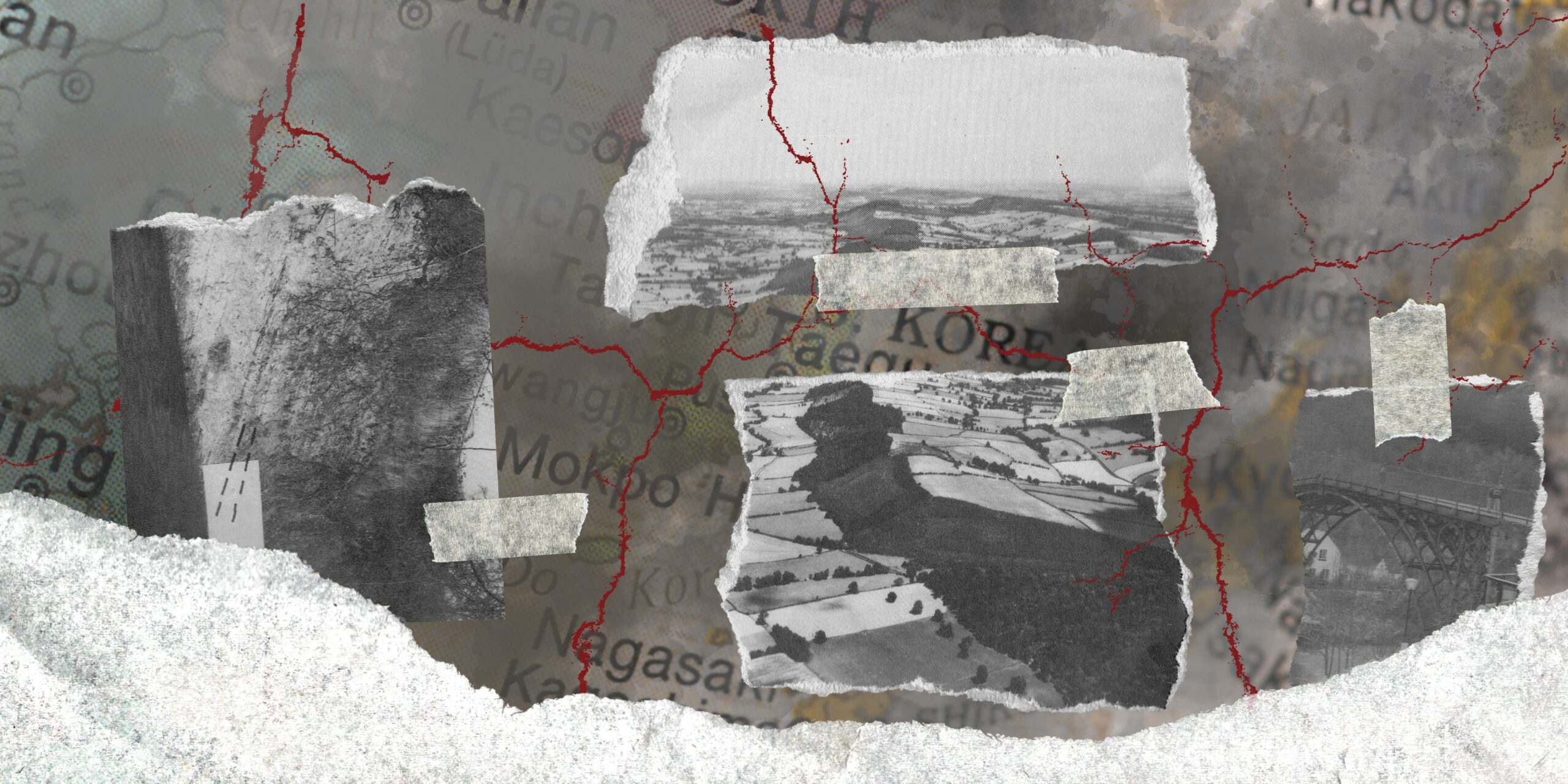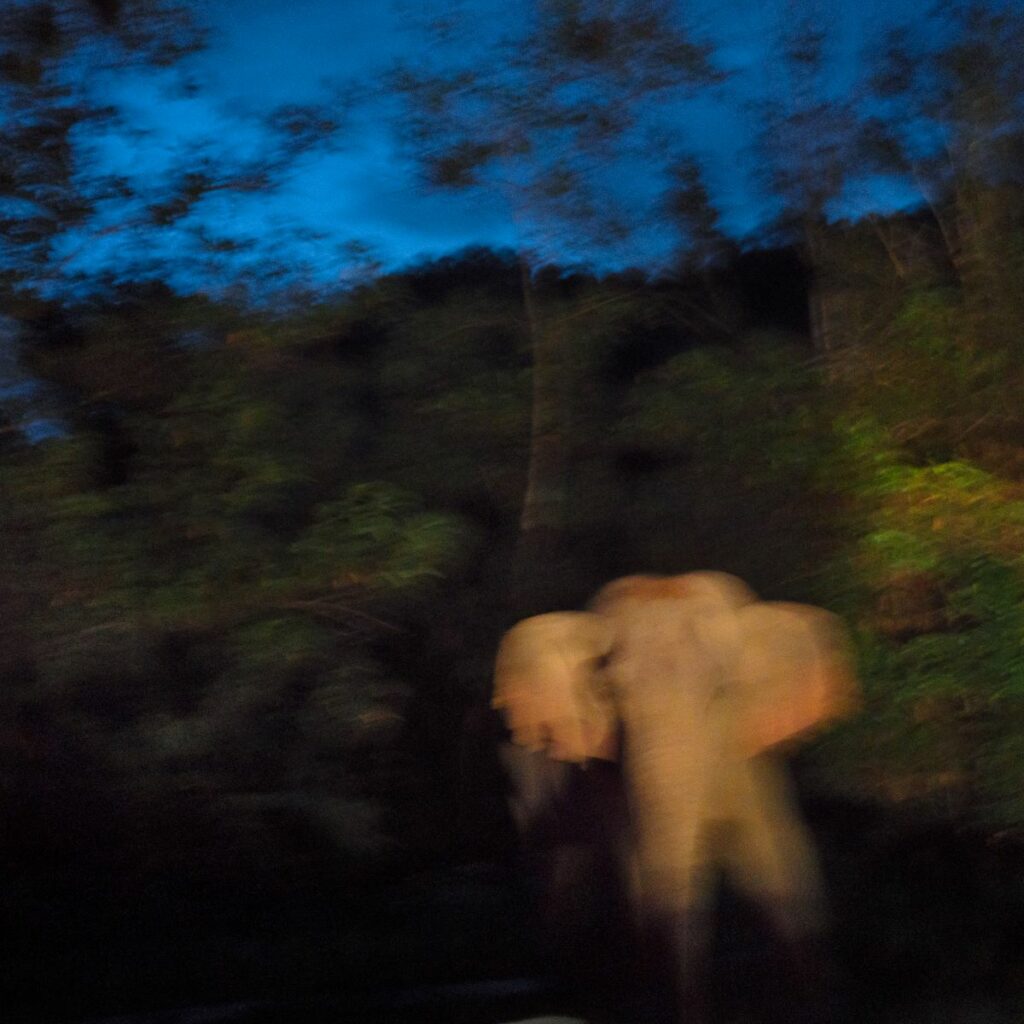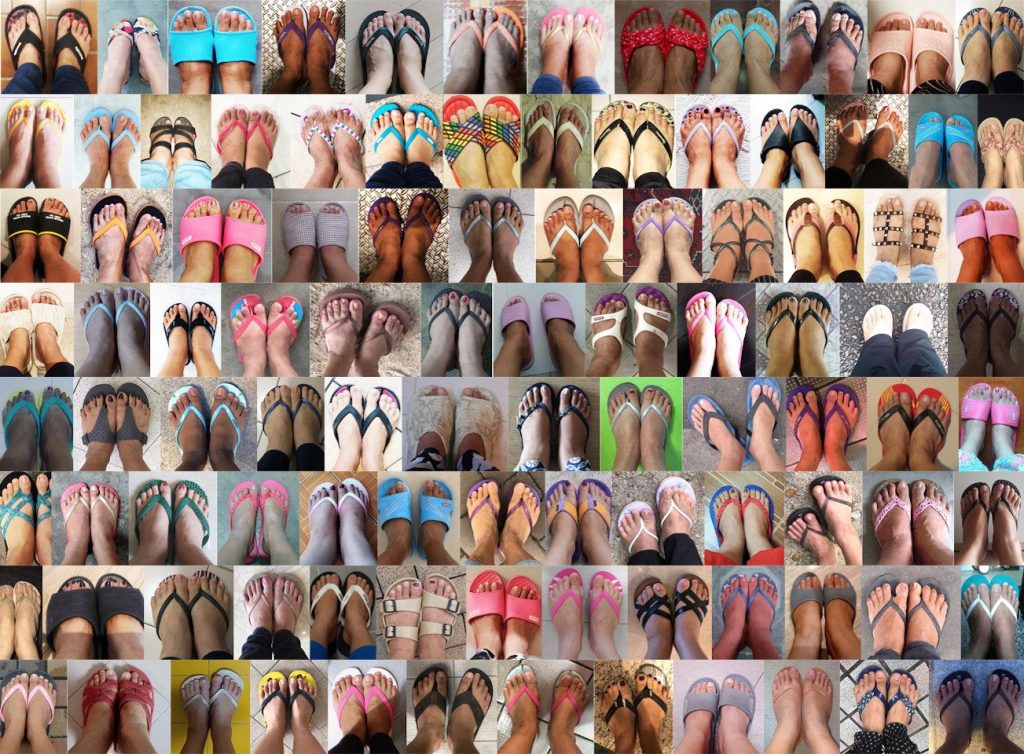自分が国民になりたい国家とはどんな国家か? |
What kind of state would I want to belong to as a national citizen?

December 14, 2022
This piece is adapted from the author’s keynote address for the “Empires in Motion: Colonial Diasporas & Cultural Production in the Shadow of the Japanese Empire” Conference held on March 21, 2022, at the University of Hawaiʻi at Mānoa. In the address, titled “Poetic Narratives of a Stateless ‘Zainichi Saram,’” Zhong Zhang discusses, among other topics, his identity as a Zainichi Korean; Zainichi Koreans being ethnic Koreans living in Japan who immigrated, or are the descendants of those who immigrated, to Japan before 1945.
私は1968年生まれ、今年54歳の在日コリアン3世で、日本で最大の在日コリアンの密集地である大阪・猪飼野の東はずれに位置する東大阪市で暮らしています。
私は今でこそ、チョンヂャンという民族名を名乗って、在日朝鮮人の詩人として、こうして在日コリアンを生きていますが、じつは二十歳になるまで、自分の本名をハングル読みもできないような、民族的素養のまったくないお粗末な朝鮮人でした。大学に入って独学でハングルを学んで、ようやく自分の名前がチョンヂャンと読むんだということを知ったくらいです。それまで自分の本名は日本語読みの「ていあきら」だとおもっていたほどでした。
両親は二人とも戦中戦後にこの日本で生まれた在日2世で、在日朝鮮人への差別が最も厳しかった時代の人です。この世代の在日の人は、ほとんど例外なく、子どものときにチョーセンと言って石を投げられた経験が有るくらい、ひどい差別に苦しんだ世代です。なので、私の両親は朝鮮人としての自分の出自を恨めしくおもって、日本人よりも日本人らしくなりたいと懸命に努力しました。植民地時代の創氏改名以来、ずっと名乗り続けている日本名を通名にして生きてきましたし、自分が朝鮮人であることは世間に隠して表向きは全くの日本人として生きていました。そのような両親のもとで私は育ちましたので、日本の通名で日本の公立学校に通いながら、周りの日本人と同じように暮らしていて、幼い頃から自分自身が朝鮮人であることですら気づかずにいるほどの子どもでした。
そんな私が10歳の頃、或る日、通っていた小学校で、担任の先生からこんな言葉を聞くことになりました。「あなたたちはみんなは日本人なんですよ」と、そんなふうに何かの拍子に担任の先生がクラスのみんなに呼びかけたんです。私はそれを聞いて「へえー」とおもって、家に帰ってから「今日、学校で、みんな日本人なんだと教わったよ」と両親に伝えました。それを聞いて両親は初めて「お前は日本人じゃなくて、朝鮮人なんだよ」と教えてくれました。私は親のその教えを聞いて、自分がみんなとは違う朝鮮人なんだと知って、じつはとても喜びました。みんなとは違う特別な存在なんだと知って嬉しかったのです。
私は嬉しさのあまり、次の日に学校に行って、クラスメートのみんなに「ぼくはみんなとちがって朝鮮人なんだよ」と自慢気に話して回りました。すると、よほど私が自慢気に話すものだからか、私のことを羨ましがっている子もいたほどでした。そしてその日、家に帰ってまた両親に「みんなに自分が朝鮮人なんだと話した」と得意げに報告すると、両親はびっくりして「人前で朝鮮人だと言ってはダメだ、隠さないとダメだ、いじめられるから、差別されるからダメだ」と私を諭しました。
それ以来、私は自分が朝鮮人であることを隠し、日本人のふりをしながら、生きていくことになりました。人間にとって、自分で自分の出自を受け入れられないことほど苦しいことはありません。それは私にとって地獄の日々の始まりとなりました。私は大学生になるまで、自分に嘘を付き続ける、そのような苦しい人生を生きなければなりませんでした。
じつはその頃その虚しさを紛らわすために私は詩人になることを夢みて、詩を書き始めたのは高校生の時でした。書き上げた詩を東京で発行されているいくつかの詩誌に投稿したりもして、ひそかに自らが詩壇にデビューする空想に浸りもしています。しかしそのようにして、詩人になりたいがために書いた詩などが、詩であるはずがありません。
詩とは、虚しさを紛らわすものでも、虚しさから逃れるためのものでもなく、虚しさに意味をもたらすためのものです。そして詩人は、詩人になりたいからとか、詩人でありたいから詩を書くのではなく、自らの中に書くべきものを持っているから書くものです。
虚しさの荒野に、意味の種を蒔き、育て、花を咲かせ、実らせるのが、詩人の仕事です。ですから詩人は虚しさの荒野に立たねばなりません。その虚しさの荒野に真っ向に挑むべく意味の種を蒔くのです。文学の世界とは、現実の虚しさを紛らわすために造られた慰安の花園ではありません。
ですから、その頃の私がいくら詩を書いたところで、それは詩といえるものでは到底ありませんでした。
私は、もうこれ以上、抑圧された人生に耐えられませんでした。偽りの人生から解放されたくて、私は朝鮮人として生きる道を求めるようになりました。そのためには差別をはじめとする巨大な闇の力と対峙して闘うための力を手に入れなくてはなりません。私はその力として文学を選びました。とくに大学生になって在日朝鮮人文学を読むようになった。このように、私にとって詩人として生きるということは、朝鮮人として生きるということであり、むしろ、朝鮮人として生きるために、私は詩人になったとも言えます。差別を恐れ、出自を隠して生きなければならない抑圧された人生から解放され、本名を名乗って生きるという、人として当たりまえの人生をようやく私は歩み始めることができました。
私は普段、自分のことを「無国籍の在日サラム」と称しています。「サラム」とはコリア語で「人」という意味を表す語で、「コリア民族の総称」という意味で、私はこの「サラム」を用いています。在日コリアンの国籍には、韓国籍と朝鮮籍がありますが、じつは私のような無国籍の朝鮮籍という無国籍者がいます。つまり、在日コリアンの国籍には、韓国籍と朝鮮籍があって、韓国籍は大韓民国の国民、朝鮮籍は朝鮮民主主義人民共和国の国民がいる。しかし、朝鮮籍の中には無国籍者もいると言うのが正しい理解となります。
在日コリアンの国籍の歴史はというと、植民地時代は、朝鮮人はみな日本国籍を持たされました。日本の敗戦でコリア民族は解放されましたが、日本に暮らす在日コリアンは日本国籍を持ったままでした。47年のGHQの外国人登録令の公布で、在日朝鮮人は当分の間、外国人として扱うということになり、わたしたち在日同胞には、国籍ではなく、旧植民地の朝鮮半島出身者という意味での「朝鮮」という記号があてがわれました。そして52年のサンフランシスコ講和条約発効と同時に、外国人登録法が制定され、その法律によって在日コリアンは、日本国籍離脱者となりました。つまり、日本国籍を剥奪されました。当時日本で暮らす在日コリアンはおよそ70万人いたわけですが、このときほぼすべての在日コリアンが、外国人登録法上は「朝鮮籍」となり、事実上の「無国籍者」となりました。
その後、1965年に日韓基本条約が締結され、日本と韓国の国交が樹立しましたので、日本政府は「韓国籍」を正式な「国籍」だと認めることになりました。 そして在日コリアンの国籍表記、つまり見た目は、「朝鮮籍」と「韓国籍」の2種類になりました。しかしながら、それらは事実上、国籍なのか、何なのか、権利やら何やらすべてが不明確な、複雑怪奇な状態のままで、現在に至っています。
私は1968年に京都市の母の実家で生まれた在日3世で、両親はともに日本生まれの在日2世です。
父は1940年生まれの朝鮮籍で、母は1946年生まれの韓国籍です。67年両親の結婚時には、南北のいずれの政府も朝鮮籍と韓国籍の婚姻を認めていないため、婚姻届を南北政府のどちらにも届けずに、日本の市役所だけに提出し、同様に、私の出生届も日本の市役所だけに提出しました。68年当時は日本も韓国も国籍法は父系優先血統主義であったので、私の国籍は父の国籍と同じ「朝鮮籍」となりました。
しかしながら、私は自分の朝鮮籍が無国籍であるということをはじめは全く知りませんでした。私の周りには両親を含めて、誰も朝鮮籍が無国籍だということを教えてくれる人が居なかったからです。でも、じゃあ、自分の朝鮮籍というのは一体なんなんだろう? 私も普通皆がそう考えるように、朝鮮籍は北朝鮮のことなんだろうとおもうのですが、自分が北朝鮮の国民だとは絶対に思えないし、さらに言えば、両親共に半島のルーツは慶尚道で今の韓国なのだから、余計に北朝鮮人だと言うのは変だ。
じゃあ一体朝鮮籍ってなんなのか? 自分はいったい何者なのか?と、そのようにアイデンティティが定まらずに、フラフラしていましたが、そのような私に、朝鮮籍が無国籍だと教えてくれたのが、大学に入ってから読み漁った在日朝鮮人文学でした。
私がそのように国籍にこだわり、無国籍者を生きる理由は2つあります。1つ目は祖国統一への想い、これは南北分断に抗議する想いでもあリます。南北いずれかの立場に身を置くのではなく、無国籍の視座で統一を考えたい。
国連難民高等弁務官事務所は、無国籍者が発生する原因の一つとして「国家の分裂あるいは国境線の変更」を挙げていますが、日本による侵略・植民地化、南北分断政府の成立、そして朝鮮戦争と、私が、無国籍者になった原因はまさにここにあります。祖国が統一されて初めて、侵略や戦争によって奪われたコリア民族の尊厳と独立が、真に回復されるのではないか、そしてそのとき無国籍者としての恨・ハンが解けるのではないか、そのように私はおもっています。
もう一つの理由は国家の国民としてではない人間としての生き方への想いからです。私のように、生まれながらの無国籍者は、幸か不幸か、国民になったことがない立場から国籍を選択することができる人間です。なので、国籍をこれから選択しようとする立場から国家を見たとき、自分が国民になりたい国家とはどんな国家なのか?と考えます。
無国籍者は国民国家の枠から外れた存在ですが、それは近代国民国家ができる以前の人間の視点、つまり自然状態の人間、自然人の視座から国家に対峙しえる存在であると私はおもっています。
本来、国家とは自然人の幸福追求を保障するための機構であるはずですが、しかし、無国籍者・自然人の視座から国家を見ていますと、人間を幸福にするために発明されたはずの国家が、人間の幸福を侵害しているのではないか?
はたして、国家は人間の幸福のために機能しているのか? 人間にとって国民になることが本当に幸せなのか? 自分が国民になりたい国家とはどんな国家か? それは人間の幸福を侵害しない国家。そしてそれは戦争をしない国家であるに違いない、私はそうおもいます。
無国籍者の視座から見ると、国民というのがバケモノに見えるときがあります。国民は殺したくなくても殺さなくてはならない兵士というバケモノになったり、同じ人間なのに国籍で差別するバケモノになったりします。
しかし戦争をしない国家というのは果たしてありえるのでしょうか? 国家は他国との戦争を前提に軍隊を保有するので、国家は戦争を撲滅することはできないのではないか? いや、そうではない。
日本国は、憲法9条に「戦争の放棄」を掲げる世界に稀なる国家ではないか。しかし今の日本には、憲法改悪を望み、軍隊保有を望む政治家や国民も存在します。人類は国家や国民という名のもとにどれだけの殺戮への加担を繰り返してきたか。
むろんそれはたとえ無国籍者であっても殺戮の加担者としての人類的原罪からは決して免罪されない。だからこそ私の志操、信条に照らせば、国家の殺戮に加担することにもなる国籍選択(取得)には慎重にならざるをえないのです。
このような理由で、私は今もどの国の国民になる気にもなれずに、無国籍者を生きつづけていますが、国家は、自国の国民ではない、そんな私のような無国籍者に対して、まるで国籍取得を引き換えにするかのように、無国籍者の人権を奪います。例えば「移動の自由」がまさにそうです。
無国籍者にはパスポートが無いので、海外旅行ができないのではと思われる方も多いのですが、私の場合は、日本の法務省が発給している「再入国許可書」を使って、海外に行くことができます。この再入国許可書というのは、あくまで日本国に再入国することを許可するものであって、国家が国民の安全を保障するためのパスポートではないので、不安定なものではありますが、それでも準パスポートのようにして使うことができます。私はこの再入国許可書を使って、これまで中国をはじめ、シンガポール、台湾、オーストラリアに行ったことがありますが、再入国許可書では入国を認めてくれない国もたくさんありますので、世界中を自由に渡航できるわけではありません。
また、私の「朝鮮籍」を無国籍ではなく、「北朝鮮籍」だとみなして、入国を拒否されることもあります。今回こうしてアメリカのビザが発行されて、私がハワイへ来ることができたのは、アメリカ政府が私を北朝鮮人ではなく、無国籍者だと認めてくれたからに違いありません。
このように無国籍者の私にとって、国境の壁を突破するのには絶えず困難がつきまとうわけですが、そのような世界の中で、私が入国するのが最も難しい国は、じつは、韓国と北朝鮮なのです。日本帝国の植民地から解放されたあと、我が国が唯一正当な統一政府だと共に主張している韓国と共和国の南北分断両国にとって、旧植民地にルーツのある在日同胞は、我が国の国民として国籍を回復すべきだというのが双方の理屈になります。なので、韓国の場合、パスポートか、旅行証明書での入国が条件になります。しかし私は、臨時でも韓国国民になりたくないわけで、これまで「再入国許可書」での韓国訪問を求めてきました。
私のルーツは現在の韓国にあります。私の父方、母方の祖父母の各々の4つの故郷が、私のルーツの源流地だと言えるとおもいます。この4つの故郷から祖父母たちは朝鮮半島から日本へと渡ってきて、家族を作り、子孫を遺して、今の私があります。私はこの自分の源流の地を命のある間に訪ねてみたいと切に願っています。
かつてジョン・ロックは『統治二論』の中で、もし国家の悪政が生じた場合、つまり権力による、自然権侵害が起こった場合は、人間は自然権を守るために「抵抗権」を行使することができるといいました。現在の民主主義国家において、社会契約を更新するための抵抗権を行使する最も重要な手段は、選挙であり投票であろうかとおもいます。
しかし、日本で生きる無国籍者や外国籍者には悲しいかな、選挙権がありません。しかしだからといって無国籍者や外国籍者が何もできないわけではありません。民主主義は、選挙での一票を投じることでしか国家や社会は変えられないとよくいわれます。それが民主主義だとも。私も民主主義者であるのでそのことをしかと認めます。
今後も私は、このように無国籍サラムを生きてゆくつもりですが、このような私の生き様を見て、それはあまりに夢想的なことではないか? そのように思う人もいるかも知れません。でも、せっかく無国籍者に生まれてきたのだから、これからも無国籍者としての可能性を生きてゆこうとおもいます。
そもそも詩人とは本質的には自由な自然人であって、国籍を持っていることのほうが不自然なのではないか。そう考えれば詩人を生きている者にとって無国籍者であることは、まんざらでもないことなのだと、そのように私にはおもえてきます。
はたして国民であること、国籍を持つこと、それでほんとうに幸せなのか? 無国籍者から見た国民とはこのように言えます。国民とは、主権者という名のもとに、すべての自然人の自由や暮らしを選別することに加担し責任を負う者であり、世界中から国土における統治権を独占している集団である。はたしてあなたはどんな国民でありたいですか? 私は国民ではなく無国籍者であるがゆえに、一個の人間、ひとりのサラムとして生きることの大切さに気づきました。ですからみなさんにも、今日は一個の人間としての視点の大切さについて考えてもらえたらとおもいます。今日の私の話がみなさんにとって、国民である以前の自然人・個人の視座から、光ある未来について考えるきっかけになったらと、そう願うばかりです。
I was born in 1968 and will be fifty-four this year. I am a third-generation Zainichi Korean resident of Japan, and I live in East Osaka City on the eastern edge of Ikaino, which has the largest population of Zainichi Korean residents in Japan.
Nowadays, I have embraced the life of a Zainichi Korean poet and go by my Korean name, Zhong Zhang. But the truth is that until I was twenty years of age, I was a directionless youth with no ethnic consciousness who didn’t even know the Korean reading of my own name.
It was not until I entered university and began studying the Korean language independently that I finally learned to read my name as “Zhong Zhang.” Up to that point, I was convinced that my real name (honmyō) was “Tei Akira,” the Japanese reading of the Chinese ideographs in my name.
Both of my parents are second-generation Zainichi Koreans who were born in Japan during or shortly after the Second World War. Their era was one in which discrimination against Zainichi Koreans was particularly harsh. Members of their generation, almost without exception, shared the harrowing experience of having rocks thrown at them while being taunted with the derogatory epithet, “Chōsen.” My parents came to regard their Korean heritage as a curse and made every effort to become more Japanese than even Japanese people themselves. Ever since the introduction of the colonial-era policy that pushed Korean subjects to adopt Japanese-style names (sōshi kaimei), my family used their assumed Japanese names (tsūmei) to pass as Japanese, concealing their Koreanness to the outside world. Raised in this way by my parents, I attended public school under my Japanese name, living the life of an ordinary Japanese youth with no knowledge of my Korean heritage.
It was within this context that at the age of ten, out of the blue, my Japanese elementary school teacher said the following words to my class: “You are all Japanese.” I must have been intrigued by this, because I passed his words along to my parents when I got home.
Hearing this, my parents told me for the first time, “You’re not Japanese. You’re Korean.” I was overjoyed to learn that I was different from everyone else. I was overjoyed to know that I was special.
Perhaps it was the sense of boastfulness in my voice that caused my classmates to be jealous of me when I told them. When I went home to my parents that day and smugly told them what I had done, they scolded me in horror: “You can’t tell anyone you’re Korean! You have to keep it a secret, otherwise they’ll bully and discriminate against you!”
From that moment on, I hid my Koreanness and pretended to be Japanese. For a human being, there is nothing more painful than to deny one’s origins. For me, every day became a living hell. Until I entered college, I continued to lie to myself, thereby perpetuating this painful existence.
To distract myself from this emptiness, I dreamed of becoming a poet and began writing poetry while in high school. I would submit my poems to numerous poetry magazines in Tokyo, consumed by my secret fantasy of debuting in the poetry world. But poetry written for the sake of becoming a poet cannot be called poetry.
Poetry doesn’t exist to distract us from emptiness, or as an escape from that emptiness, but rather, to give meaning to emptiness. And the poet composes poetry not because they want to become a poet, but because there is something inside of them that compels them to write.
The poet’s task is to sow seeds of meaning in the wasteland of emptiness, and nurture those seeds until they bloom and bear fruit. The poet must stand in and face head-on the wasteland of emptiness to sow the seeds of meaning. The world of literature is not some garden of comfort made to distract us from the emptiness of reality.
For that reason, no matter how much poetry I composed in those days, none of it could really be called poetry.
But still I couldn’t bear living a life of repression any longer. I longed to be liberated from my false existence and searched for a way to live my life as a Korean. To do so, I had to garner the strength necessary to confront the dark and imposing specter of discrimination and hatred. To find this strength, I looked to Zainichi Korean writers. I was able to live as a poet because I started living as a Korean person. Or you could say that I became a poet in order to live as a Korean person. I was at last freed from the oppressed life of fearing discrimination and hiding my origins, and could begin living life as a human should, under my own real name.
When it comes to the citizenship status of Zainichi Koreans, there are the designations Kankoku-seki and Chōsen-seki; the latter category includes stateless persons like myself. There are Kankoku-seki who are citizens of the Republic of Korea, and Chōsen-seki who are citizens of the Democratic People’s Republic of Korea. However, the correct understanding is that, in the case of Zainichi, Chōsen-seki also includes people like me, who are stateless.
The history of Zainichi Korean citizenship begins with the colonial era, when all Koreans were given Japanese citizenship. After Japan’s defeat in World War II, the Korean people were liberated, but Zainichi Koreans living in Japan kept their Japanese citizenship for a time. With the promulgation in 1947 of the Alien Registration Ordinance by the U.S. Occupation’s General Headquarters (GHQ), which was the U.S.–led administration governing Japan during the postwar occupation (1945–1952), Zainichi Koreans were, for the time being, to be treated as foreign nationals. Yet, the designation of “Chōsen” that was assigned to Zainichi did not signify citizenship, but rather referred to people who originally came from the Korean peninsula, a former Japanese colony. Then, in tandem with the conclusion of the Treaty of Peace with Japan in 1952, the Alien Registration Act was enacted. At the time, about 700,000 Zainichi Koreans were living in Japan. According to that law, they were stripped of Japanese citizenship, and almost all of them were designated Chōsen-seki, effectively rendering them stateless persons.
In 1965, with the Treaty on Basic Relations Between Japan and the Republic of Korea, diplomatic relations between Japan and South Korea were established, and the Japanese government began to officially recognize the citizenship of the Republic of Korea.
Thus, the written designation that applied to Zainichi Koreans, on its face, was split into two different categories: Kankoku-seki and Chōsen-seki. However, even today, these two designations remain in a state of confusion, where it is utterly unclear whether these designations denote citizenship or something else, and what rights attend them.
I usually refer to myself as a “stateless Zainichi saram.” I use the Korean word for person, saram, as a general umbrella term for the Korean ethnic nation. I am a third-generation Zainichi Korean resident of Japan, born in 1968 at my mother’s family home in Kyoto. My parents are both second-generation Zainichi Koreans born in Japan. My father was born in 1940 and is Chōsen-seki, while my mother was born in 1946 and is Kankoku-seki.
Because in 1967, when my parents married, the governments of North and South Korea did not recognize marriages between Chōsen-seki and Kankoku-seki, my parents did not register their marriage with either government. They could only file that registry at the local public office in Japan, and the subsequent record of my birth was similarly only filed with that same local office. Japanese citizenship law in 1968 followed the principle of patrilineal descent, and the same was true in South Korea, so my citizenship was that of my father, Chōsen-seki.
At first I was completely unaware that my status as Chōsen-seki meant that I had no citizenship anywhere. No one around me, including my own parents, told me that Chōsen-seki meant statelessness. So then, what does my status as Chōsen-seki actually mean? Most people, even me, probably would assume that Chōsen-seki refers to North Korean citizenship. But I absolutely do not think of myself as a citizen of North Korea. Furthermore, because both of my parents’ roots on the Korean peninsula are in Gyeongsangbuk-do, in the South, it would be rather strange to call me a North Korean.
But the question remains: What is Chōsen-seki? What am I? I felt that my identity was unsettled, that I was free-floating. Only when I entered college did I learn that Chōsen-seki is a designation of statelessness. I learned this by reading Zainichi Korean literature.
There are two reasons why I have remained firm on the question of citizenship and chosen to live as a stateless person. The first reason is a desire for a reunification of the homeland, which is also my protest against the North-South division of Korea. I choose not to identify with either the South or the North, but instead contemplate reunification from the perspective of a stateless person.
The United Nations High Commissioner for Refugees lists “national division or the shifting of national borders” as one factor in producing stateless individuals. Invasion and colonization by Japan, the formation of the divided North and South governments, and the Korean War are indeed the root causes that made me a stateless person.
Isn’t it only through reunification of the homeland that we will finally restore the dignity and independence of the Korean people that has been stolen from us through invasion and war, and resolve a history of lamentation (han) experienced by the stateless?
The other reason is rooted in my sentiments about living as a human being who is not the national citizen of any state. For better or worse, a person like myself, who has been stateless since birth, can choose citizenship from the standpoint of one who has never been a national citizen. And when I consider this prospect, I ask: What kind of state would I want to belong to?
To be a stateless person is to exist outside of the framework of the nation-state. I believe this enables me to confront the state from the perspective of a natural person, which is to say, humanity in a state of nature before the emergence of the modern nation-state.
The modern state was originally envisioned as an institution that would ensure that the natural person could engage in the pursuit of happiness. But when considered from the standpoint of a stateless, natural person, is it not clear that the state, though invented to ensure human happiness and welfare, is in fact guilty of violating human happiness?
In the end, is the state truly functioning to ensure the happiness and welfare of humanity? Has becoming national citizens been a blessing for human beings? What kind of state would I want to belong to as a national citizen? It would be a state that does not infringe upon human happiness. And it would certainly be a state that does not engage in war.
From the perspective of a stateless person, the very idea of national citizenship appears at times to be a monstrosity. For instance, during war, citizens of a nation are transformed into the monstrosities we call “soldiers” and forced to engage in the act of killing, regardless of whether they want to kill or not. They become monstrosities who discriminate against fellow humans on the basis of citizenship.
Yet, could a state that does not engage in war actually exist? Because the state maintains a military force in preparation to go to war with other countries, one might think that it is impossible for a state to eradicate war. But actually, this is not the case.
Does not Japan occupy the unprecedented position of a nation-state with a constitution that, in Article 9, stipulates the renunciation of war as a sovereign right of the nation? In Japan today, however, politicians and people dream of revising the constitution for the worse, so that the country can maintain a military. Just how many atrocities have been committed in the name of the nation-state or national allegiance?
This is not to say that the stateless person is absolved of their role as an accomplice to the original sin of human atrocity. And yet, this is precisely why, based on my own principles, I must remain extremely wary about adopting a citizenship, which may bring with it complicity in atrocities committed by the state.
For these reasons, I have never been inclined to become a member of any nation-state. But states target and violate the human rights of stateless persons who are not their own citizens, as if attempting to force them to adopt citizenship. This is true, for example, when it comes to the freedom of movement.
Many people assume that because someone without citizenship has no passport, they likely cannot travel abroad. Yet, in my case, I can go overseas on a “reentry permit” issued by the Japanese Ministry of Justice. This reentry permit, however, merely serves as proof of permission for reentry into Japan. Because it is not a passport issued by the state to ensure the security of citizens, it is rather unstable.
And yet, I can use it as a quasi-passport. To date, I have used the reentry permit to travel to China, Taiwan, Singapore, and Australia. But many countries will not permit one to visit on a reentry permit, so I am not free to go anywhere in the world.
Furthermore, I have even been denied entry to a country where the officials regarded Chōsen-seki not as statelessness, but as North Korean citizenship. I am certain that the U.S. government issued me a visa, allowing me to visit Hawaiʻi , because they recognized that I am a stateless person and not a North Korean citizen.
For a stateless person like myself, breaking through the barriers presented by national borders is always a challenge. But the two most difficult countries in the world for me to enter are, in fact, North and South Korea. The reason is that the divided governments of North and South, formed in Korea after liberation from Japanese colonial rule, both insist that they are the sole legitimate regime in our country.
Zainichi Koreans with roots in the former colony are pressured from both sides to take their citizenship. In the case of South Korea, I am told that I may only enter on a South Korean passport or temporary travel certification. Yet, I have no intention of becoming a citizen of South Korea, even temporarily, and have until now asked to be allowed to visit on a Japanese reentry permit. South Korea has yet to grant me permission to enter the country.
The four hometowns of my paternal and maternal grandparents, that is, the original source of my roots, are in present-day South Korea. My grandparents made the crossing from these four places on the Korean peninsula to Japan, where they started families and left behind descendants, including me. I have a sincere desire to visit this land of my origins during my lifetime.
John Locke’s Second Treatise on Government asserts that humans can exercise the “right of revolution” to protect their natural rights in cases when a republic has fallen into tyranny and those in power have violated these rights. In contemporary terms, for democratic states, voting in elections is the most important means of exercising the right of revolution, for the sake of renewing the social contract.
Sadly, however, stateless persons and foreign citizens living in Japan lack the right to vote. This is not to say that stateless persons and foreign citizens have no influence. It is often said that in a democracy, the only way to change the state or society is by casting one’s vote in an election. That’s democracy, after all. I am a believer in democracy and accept this. However, it should also be an ironclad rule of democracy to recognize that the value of elections based solely on majority rule is not absolute. In my opinion, a truly democratic society is one where it is possible to believe that a single poem or painting might have the power to rival a single vote. As a stateless saram poet, I have no choice but to say this.
Going forward, I intend to continue living my life as a stateless saram. Some people may look at my way of life and view it as a kind of delusion. But since I was born stateless, I’ll keep living up to my potential as a stateless person.
Given that a poet is essentially a free, natural person, wouldn’t it be all the more unnatural for me to possess state citizenship? If you think about it that way, it seems to me that being a stateless person is not a wholly inappropriate way of living for a poet.
I’d like to end by asking the following question to those of you who are citizens by birth. Does being a national citizen and holding citizenship with a state really make you happy? A stateless person would describe a national citizen in the following way: national citizens constitute a collective group that can claim sovereignty over a national territory against the world. In the name of sovereignty, national citizens bear responsibility for perpetuating a system that selectively limits the freedom and lives of natural persons on the discriminatory basis of citizenship. Ultimately, what kind of national citizen do you want to be? Because I am a stateless person and not a national citizen, I’m aware of the importance of living as a saram, as one person. So, today I’d like all of you to give some thought to the value of one individual human’s point of view. This could be an opportunity for you to take the perspective of a natural person who predates the national citizen, and imagine a bright future.
Read “Article of Peace (平和の条),” a poem by Zhong Zhang and translated from Japanese by Andre Haag and Nathaniel Heneghan.



